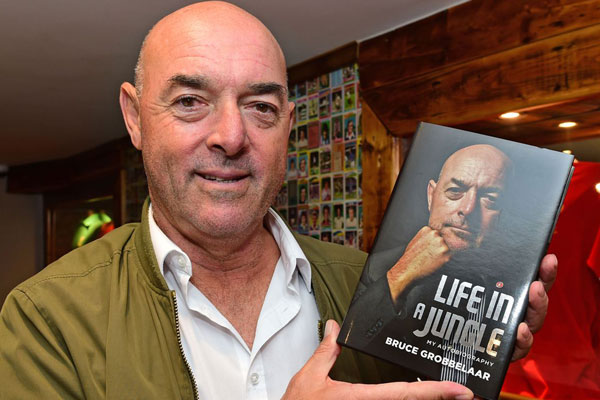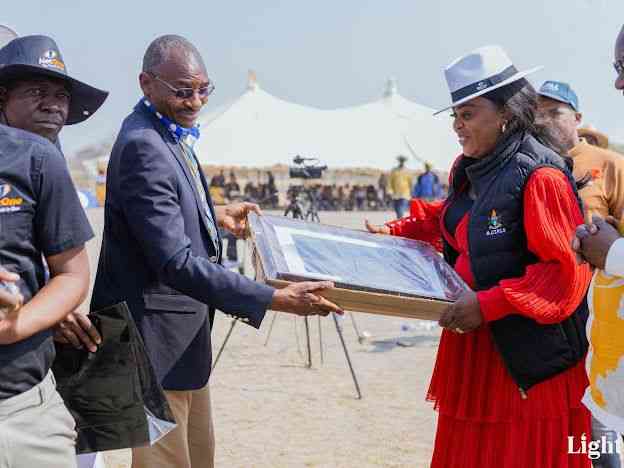
By Jonathan Maphendukka
CENTURIES after (Charles) Darwin created a great controversy among scholars that humans started life as apes, there is still striking evidence that the line of difference between human beings and apes is pretty thin.
The basic reason for this is that both humans and beasts of the jungle suffer from the power of sin. The Word says even nature (trees, mountains, water etc) groans to be released from the power of sin.
This is despite the fact that humans have for centuries now spent years of their lives in a classroom learning a course, which should refine them so that they become civilised and more tolerant beings.
In his book The Chartered Millions, John H Harris says Cecil John Rhodes and Leander Starr Jameson constituted “men to whom no act of spoliation and hardly any crime too heinous to commit”. These were two men who told the world they were advancing civilisation to the natives in this country.
Jameson rushed into “where Angels fear to tread” says Harris.
Both Rhodes and his hatchet man had University education, with Jameson graduating with a doctorate in medicine. Can the world expect that level of education should have refined them to become more tolerant in their social behaviour?
There is irrefutable evidence that Rhodes plotted to kill Prince Njube. Njube and his sibllings, Nguboyenja and Mpezeni were taken away from their own people in 1898 to be “educated” in Rhodes’ Cape Colony, when the real motive was to purge the Matabele Monarchy.
- Chamisa under fire over US$120K donation
- Mavhunga puts DeMbare into Chibuku quarterfinals
- Pension funds bet on Cabora Bassa oilfields
- Councils defy govt fire tender directive
Keep Reading
How could Rhodes “educate” the children of one who made the invasion of the kingdom so difficult for Rhodes’ forces? Did he have the motive to purge the monarchy after Lobengula disappeared?
These are some of the questions in a complex subject.
Mpezeni drowned in Port Elizabeth soon after their arrival. He was no more than ten. The circumstances surrounding his drowning are unknown.
Professor Terrence O Ranger in his book, The African Voice in Southern Rhodesia says when Njube increasingly became insubordinate in Rhodes’ household because he wanted to be allowed to return home, a correspondent wrote to Rhodes saying “why don’t you quietly get rid of him because as long as he is there, there will always be trouble”.
It is believed that the “correspondent” was in fact Jameson who was then the Administrator of the British South Africa Company/Chartered Company.
Both Njube and Nguboyenja died of mental disease 12 years after they left home, without being allowed to return to their own people.
The history of the war of liberation is studded with examples of how we succumb to instincts that one expects of the beast of the jungle. How, therefore, have we profited from our education?
When Lord Soames arrived in the country to oversee transition from colonial rule to independence, he said freedom fighters were still committing “beastly” acts against civilians in parts of the country.
These beastly acts included “shoving iron shafts in their victims’ whatnots”. This is something to worry about because it reflects that our instincts are not far-removed from that of animals.
And this behaviour crosses all colour lines because the power of sin is universal.
If a gathering of people is exhorted to shout “down with Choto” do we realise that they are being given licence to commit a crime? Can a charge of inciting people to violence be brought against a leader who recited the denunciation of Choto be charged with a crime?
There is perhaps no better subject, therefore, than studying what happened during the liberation war in the frontline states, inside the country and post-independence times. There is also the reality of persisting conflicts within the country 40 years after attainment of self-rule.
Some of the gory reports were laid bare before the Motlante Commission but there is no adverb strong enough to shock us.
During the struggle Herbert Chitepo, Jason Ziyaphapha Moyo and Nikita Mangena died from explosive devices. Their deaths were blamed on their Rhodesian enemies. The Rhodesians had a motive to stop them in their tracks. There was further an attempt on Joshua Nkomo’s life.
Moreover, there was also open rivalry among leaders of the struggle.
Perhaps the most tragic episode was the rather convenient death of Josiah Magama Tongogara in a reported road accident. Since independence a lot of amazing episodes have happened and continue to happen.
We have since seen the mysterious death of Solomon Mujuru in a blaze that gutted his farm house.
It has been suggested that he had had one drink more than was good for him. Did that extra drink start the fire just when he happened to be home? But as former army commander he still enjoyed respect within the ranks of the army. He also had enemies.
His death, therefore, could have been a pre-emptive purge to forestall a perceived potential danger.
Ask Rugare Gumbo and many others. Ask Christopher Mutsvangwa.
If you care, even ask Joice Mujuru, Mutasa … the list is long. Ask that man who became owner of Shabani Mines who now lives in exile for reasons that have never been revealed, to justify his exile.
Someone went abroad and came back to tell his own people that he went there to learn how to kill. He demanded that they toe the line or else … If you ride on a hyena stay on its back or it will turn around and maul you.
During the liberation struggle I worked among Zanla forces in Masvingo province and heard some disturbing reports. Rhodesian forces once attacked Berejena Mission, a Catholic mission in Chibi district, killing a priest. One Kereke, a teacher at the mission, narrowly escaped death.
Like most people, he was a card-carrying member of Zanu.
Sometime in 1978, a group of members of Zanla forces called a meeting near Mpamawonde School in Bikita West. The meeting was for a witch-hunt. Six old women were picked from the gathering and executed.
One of them was Kereke’s mother.
Villagers were ordered to leave their bodies in the open un-buried, for dogs and vermin to feed on them.
That same week I received news that my sister and two sons had been executed by Zpra forces in Dandanda in the jungles of Matabeleland North. Their crime? The family had a radiogram on which they played popular music.
Their neighbours said they used the radiogram to alert Rhodesian forces about the presence of Zpra cadres. I come from a family whose members held senior positions in Zpra.
One of them died in a pitched battle against Rhodesian forces at Sinamathela in the Hwange National Park in 1967. I was arrested and lost my job with The Bulawayo Chronicle as a result.
The people of this country fought for freedom and wrestled it from the colonist. Can anyone guess how many Zimbabweans have died and continue to die defending freedom in this country when the enemy is no longer arrayed against the people?
The Monday following my brush with members of the Police Anti -Terrorist Unit (PATU) near Gutu-Mpandawana I travelled to Nuanetsi, on a tour of schools in the district. My first port of call was the business centre of Neshuro.
East of nearby Mount Shamba Rhodesian war planes were indiscriminately bombing villages. Among the casualties was an elderly woman who was too old and ill to run away to save her life. She died when a house where she lay waiting for the end to come, took a direct hit that decimated her body.
Perhaps it is not appropriate for me to use as a parallel that bombardment of villages near Neshuro because those who were carrying out the raid represented the rulers of the country then. The black people represented their enemy, even those who were not carrying arms of war.
But how do we explain the fact that we have consciously created more enemies among ourselves since independence? Doesn’t this make a mockery of the liberation struggle? Not at all because we are ruled by the power of sin.
Let me give another colonial parallel experienced during 1896/7 uprising. When colonists occupied Mashonaland in 1890 unopposed, the invasion of Matabeleland in 1893 was carried to out, it was claimed, to advance civilisation and protect the people of Mashonaland.
When the people of Mashonaland, however, joined those of Matabeleland in rebellion, the colonists used explosives to blast them in caves where they had taken refuge.
The mission of “advancing civilisation to the natives” was a cruel pretext.
Rhodes held four meetings with 28 chiefs in the Matopos sector of the uprising.
Although it is a popular myth that he “separated two bulls” in that conflict, there was no truce, armistice or peace treaty signed as a result of the four meetings with the chiefs. Moreover, there was only one member of Lobengula’s family, Nyanda.
What led to the collapse of the rising was the application of a scorched earth policy which denied the people food, with their reserves and cattle destroyed wherever these could be found.
This forced their abject surrender.
The warriors only surrendered their weapons after a general amnesty that allowed the people to return to their homes. So much for the mission to civilise the natives!
Zimbabweans have created scapegoats to justify repression to stay in power. Everything that has happened since independence belies our claims that we fought a war to further the cause of liberation, justice and freedom . lJonathan Maphenduka is an author and political analyst/commentator Contact email: maphendukajkiye @gmail.com










